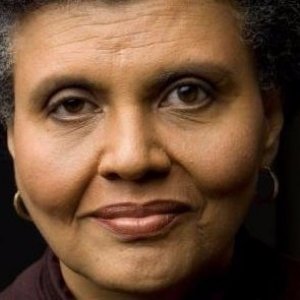By Wilhelmina Jenkins
When I became ill in 1983 with what is now called ME/CFS, my life as I knew it was abruptly destroyed. I dropped into a world of pain, exhaustion, and dozens of other baffling symptoms, most particularly the cognitive disruption that robbed me of the life in physics that I loved. After five years of confusion and loss after loss, I received a diagnosis. Even though there were no effective treatments, I knew that I was not alone, that there were many others whose stories were strikingly similar to mine.What I was not prepared to learn was that, as an African American woman, I was considered to be an anomaly, an oddity, a rarity. Black people were not supposed to have this disease.
I poured over article after article about this disease. Every one had a picture of a white woman in distress, accompanying a story of a person with my disease and my story, but not my ethnicity. Still worse, I began to read absurd explanations from those in authority supposedly explaining why Black people did not have this disease – that we had been exposed to more pathogens at an early age, for example. Meanwhile I was hearing stories from all over the United States about other Black people whose lives were crushed by this disease, just as mine had been. Those responsible for the health of the people of the United States did not acknowledge them.
In the late ‘80s, I was at CDC participating in a study of this disease when the interviewer suddenly stopped in the middle of taking my history and said, “Why are you the only Black person who we can find with this disease?” I told her the same thing that I have been saying ever since – there has to be outreach to the medical professionals who treat large numbers of African Americans. There are historically Black medical schools and organizations for Black health professionals. A serious outreach to those groups that explains the severity of this disease and the importance of correctly diagnosing it within their patient populations is essential. She listened and took notes, but no action was taken.
In the late ‘80s, a groundbreaking, community-based study by Dr. Leonard Jason finally offered solid evidence that African Americans, as well as other ethnic groups, were at least as likely to be affected by this disease as the majority population. Government agencies finally acknowledged that reality. But by then, the damage had been done. ME/CFS has been linked in the minds of the medical community, as well as in those of the general population, with the image of a weary, middle aged white woman. Only a serious effort by government agencies can uproot that image and replace it with more diverse ones.
Living with ME/CFS under the best of circumstances is a nightmare. Living with it without a diagnosis is unbearable. Undiagnosed patients blame themselves, try to push through this unrelenting disease, and become more severely ill. And if you are an African American who has heard for your entire life the racist beliefs that Black people are lazy, unintelligent, and not motivated to work hard, this disease will reinforce those false internalized beliefs. A diagnosis can place that person within a community of very sick people who are trying their best under impossible circumstances. This is a very severe biomedical disease, not a personal failure.
The undiagnosed haunt my dreams. I imagine an African American mother of three who has worked two jobs to be sure that her family is well cared for, who suddenly is too sick to work at all and can find no explanation. I think of a brilliant young Black man, the first of his family to attend college, sent off with all of their hopes and dreams on his shoulders, who is slumped over his textbooks, wondering why the work that seemed so straightforward just weeks ago is suddenly impossible. There are thousands of stories just like these. They deserve the strongest effort from their government to refute the image of ME/CFS as a “white person’s disease” and to guarantee them a correct diagnosis. I will never stop fighting for this to happen.






3 thoughts on “Unseen: Black People Living With ME”
Thank you for sharing your well-expressed, and unfortunately, all-too-true story, Wilhelmina.
It illustrates that preconceived notions about who can get ME are leaving too many people without a diagnosis – or the understanding and treatments that should go with it.
I hope we can convince more medical schools and practices to take notice and educate each other.
Wilhelmina is a treasure to the ME/CFS community. Thank you for your dedication to us.
Thanks so much for all that you have done to pave the way for other black women with chronic illness.
Comments are closed.